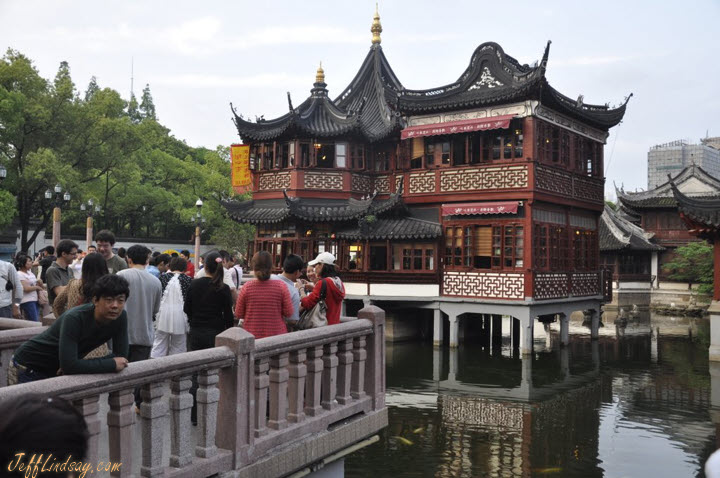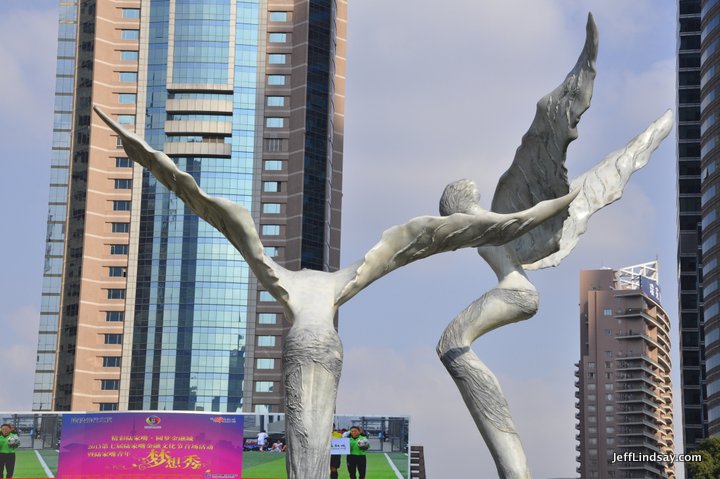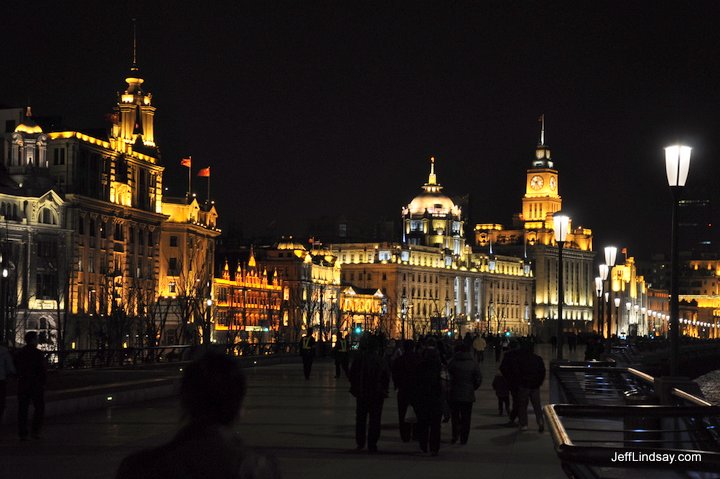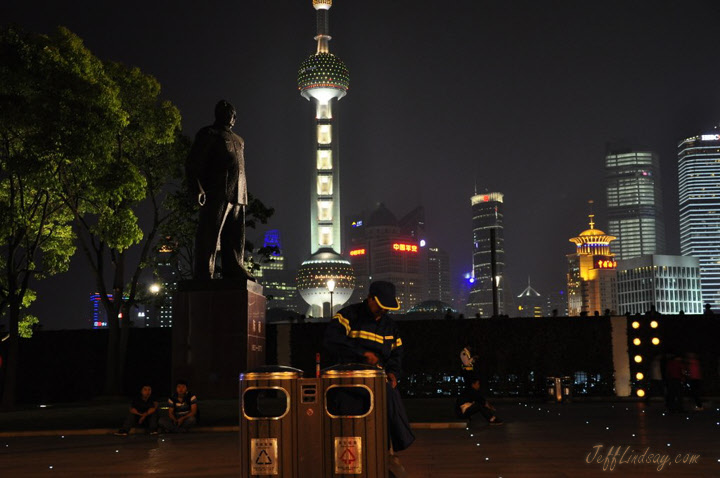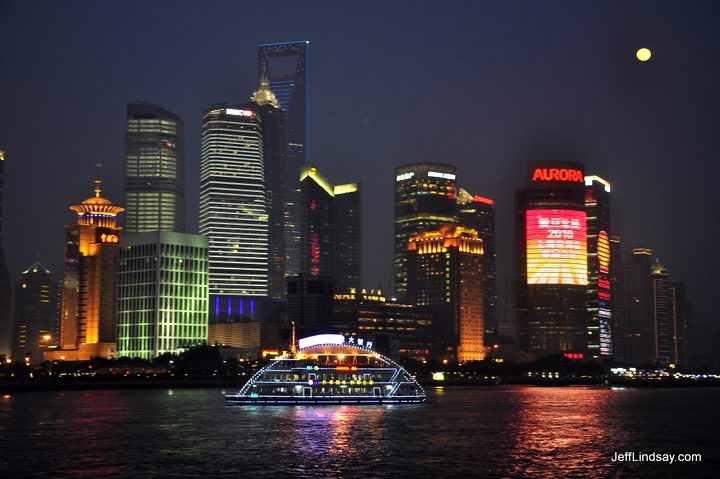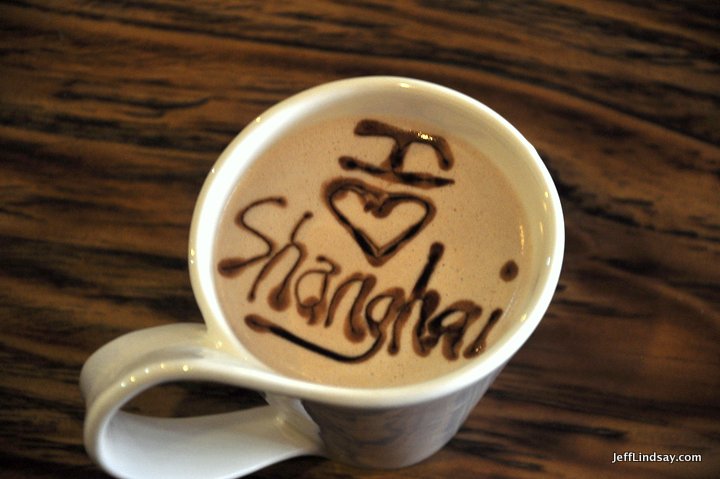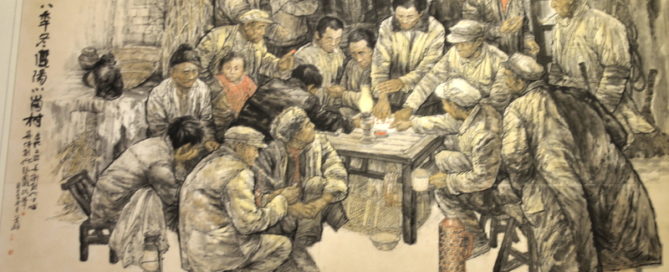Surviving in China
Related posts: Surviving Your Bike Ride in China, Five Days of Struggle to Renew a Visa, Avoiding Scams in China: The Karaoke Scam, Scams to Avoid in China, the Foreign Currency Scam, Finding an Apartment in Shanghai, Dealing with Slow Internet Connections in China, and Shopping in Shanghai.
Passport Basics
Your passport is life. Protect it. Keep it in a safe place unless you need it. Never leave it with someone you don’t trust. If a hotel wants to hold it, give them a copy but check out before you leave it with them. A friend of mine had their passport stolen while it was in the safe keeping of a hotel. Street value of a US passport is around $5,000-$15,000, I’ve heard. It may be the most tempting and valuable thing you possess. Chinese people are typically very honest, but it just takes that 1 in 10,000 to change your life quickly.
Know when you will need to bring your passport. You will need to have it with you for hotels, trains (rarely checked, but it does happen, and will be needed to buy a ticket or make changes), and planes. You will need to do anything with people at a bank, or even registering for, say, a customer loyalty card at a grocery store). Also may need it for checking into a hospital, but check to see if a photocopy will do. In any case, always have a photocopy or two of your passport with you. Carry one in your wallet or purse, and perhaps somewhere else also.
If your passport is actually missing and not just misplaced, don’t waste time waiting for it to be returned to a lost and found area. Chances are it was stolen or quickly will be. Start on the path of getting a replacement for your passport and Chinese visa. The replacement passport can be done fairly quickly, but the visa takes extra time. This will take about 3 business days typically, if things go well, so change your travel arrangements as needed. Immediately contact the US Consulate in your area (or the consulate or embassy for wherever you are from). They can get you started on this process. It’s also going to involve several hundred dollars and you will need to leave the country (Hong Kong is a good choice) and come back in to get your new temporary passport stamped and validated.
Of course, when I speak of your passport, I also refer to your visa/residency permit that will be attached inside your passport. You must not let this expire! Whether you are here as a tourist or an employee, pay close attention to the status of your visa and obey the law. Above all, don’t let it expire without having started some kind of official action to renew it. The rules became tougher in 2017, so what you think you know might not apply. Getting your visa renewed for employees requires renewal of the work permit first, and this now takes longer. Make sure you and your employer plan ahead. Read my near-disaster experience, “Five Days of Struggle to Renew a Visa: Some Discoveries in Dealing with Work Permit and Visa Issues.”
Living Large in China
Transportation Basics: See my Transportation in China page
Finding a Place to Live
If you’re just visiting Shanghai for a few days, see my page  “Visiting Shanghai” for tips on finding a place to stay. The information below is mainly aimed at those coming here for the long term.
Most people coming here for more than a few weeks will need to rent an apartment. Rent is expensive in Shanghai, where a 100 square meter apartment in a typical relatively new complex might cost from 6000 RMB ($1000) to 15,000 RMB ($2500) per month, depending on location and amenities. Many people start their apartment search with SmartShanghai.com. We’ve had good results using real estate agents that specialize in finding apartments. Some of these can be found online. Sometimes very good ones can be found by going to the area you are interested in and looking for prominent real estate offices along major roads and often near popular housing areas. They usually won’t speak much English, though, but some of the services that advertise online will have good English skills.
Landlords usually want at least a one-year contract and will require two months rent as deposit, in addition to your first month of rent paid up front. If you use a real estate agent, you may be responsible for the commission as well–find out how that works for the agency in question.
If you are coming here with children, being close to an international school may be a prime consideration. Unfortunately, there are only a couple areas in town with international schools and they tend to be well outside of the really fun and convenient downtown area, so expat families tend to congregate in those regions, namely, Hongqiao and adjacent Gubei, and Jinqiao on the PuDong Side. If you don’t have to worry about an international school, consider living in the heart of town as we do in HuangPu District in the very convenient and surprisingly affordable region known as LaoXiMen.
Many people live in PuDong but find that it is too spread out and leaves them feeling isolated. The subway system is improving there, but it has a much different feel than the crowded and bustling and extremely convenient neighborhoods of PuXi such as LaoXiMen, XinTianDi, XuJiaHui, JingAn, etc.
Before you select a place, consider what your commute will be like. Be sure to travel to and from work during rush hour so you can understand what you’ll be facing each day, whether it’s on jammed roads or the moving chiropractic clinics known as subway trains, where the pressure of fellow passengers cramming into you can realign those vertebra quite effectively and at no additional charge. Lines 1 and 2 are famous for being crowded, but now lines 6 and 8 can be quite fearsome also during rush hour. Experience it for yourself. Routes along line 10, on the other hand, can be much more manageable, as we’ve experienced.
Stay on good terms with your landlord, who probably won’t speak English. Take good care of the place and make sure any problems are communicated promptly and politely. Do you part to keep relations happy. That will help increase the odds of getting your deposit back when you leave. Some don’t succeed. We had no problem with our first place, and think we will do OK with this new one as well.
Coping with Climate
In Shanghai and much of southern China, it’s surprisingly cold in the winter, partly because many buildings aren’t heated, or if heat is available, the insulation is so poor that it doesn’t do a lot of good. As a result, it pays to dress warmly. Even expensive apartments often have poor heating systems. The heating is just a heat pump that is essentially the air conditioner run in reverse. It seems surprisingly inefficient, not to mention noisy. What many people do is give up on the built-in heating systems and just use small portable electric heaters where needed. And again, dress warmly.
For heat, southern China is usually well equipped with air conditioners and they work well, though they are noisy and expensive. Your utility bill can be shocking if you use airconditioning all the time. Use a fan as much as you can. If you are coming from the States or travel there frequently, one import you might wish to bring are the heat-shrinking 3M window films that can be used to seal leaky windows in winter. This can help keep some rooms a lot warmer, but it also means you won’t be able to open the windows. It’s a bit of work to get them installed, and there’s a risk of damaging some surfaces with this treatment, so be careful.
During the summer, it can be really hot for a few days, with very high humidity. If you are not used to that, you could face heat stroke or just a lot of discomfort. Stay out of the heat and drink plenty of fluids.
Mosquitos exist in many parts of China. In Shanghai they are far less severe than I expected, coming from the mosquito paradise of Wisconsin. The best way to avoid mosquitos is to live high above the ground, say floor 10 or higher in an apartment building. At levels 1-4 it is easy for mosquitos to find you. We are currently at level 23 and we still get an occasional mosquito that probably gets a ride in an elevator, but we don’t think any fly in through our open windows.
Food
The Beginning: Food Safety
Food is one of the crowning glories of Chinese culture. Thousands of years of culture and the preservation of many great secrets and techniques over the ages culminates in some of the most delicious food on earth, all around you in China. On the other hand, corrupted supply chains, human greed and criminal elements combine to bring some disgusting food hazards like “ditch oil,” which is possibly contaminated oil scooped out of the sewage system near restaurants and recycled by criminal gangs to be sold back to many restaurants at a fraction of the cost of fresh vegetable oil–disgusting! Perhaps 30% of China’s restaurants use ditch oil, according to government sources. If the oil smells bad or tastes funny, don’t eat it, but chances are you won’t know what oil your favorite place uses. Nicer, more expensive places are unlikely to be using ditch oil, and the cheapest places on the street are much more likely to take shortcuts.
When you buy oil at the supermarket, you can’t even be sure that you’re not getting ditch oil unless you go with a well known brand. Be aware. My favorite brand, for the record, comes from China’s largest food oil  company, one that I think has a great track record for quality: Arawana. Their logo has a golden fish. They have many kinds of oil, including sunflower oil, peanut oil, soy oil, and mixed vegetable oils. I like the soy and sunflower oils for value and flavor. I also buy imported olive oil, but it costs a lot more.
Other food scandals in China include recycled garbage of many kinds that gets reprocessed as food, dead and diseased pigs that were illegally sold back into the Shanghai meat markets for years as low-cost pork, lamb meat that turned out to be processed rat meat, fish contaminated with toxic melamine, dairy products contaminated with toxic melamine, rice contaminated with heavy metals, and on and on goes the list of scandals and dangers. We avoid meet for the most part, except for high-quality places or meet that we cook ourselves, and avoid food that is very oily, which eliminates a lot of dishes.
For best results, stick to higher-end restaurants, places you know and trust, or food that you cook yourself.
One strategy that many people pursue is to avoid eating too much from any one place or any one food. This is the “mix your poisons” strategy, based on general distrust of food establishments. If you eat the same food all the time, you’ll be getting high doses of whatever toxins they specialize in. So spread things around and keep the level of exposure to any one contaminant low. I think that is a good strategy. Don’t eat the same food all the time. For example, don’t eat rice at every meal, and don’t eat rice from the same place every day. About 30% of China’s rice has heavy metal contamination, and the water they cook it in is probably straight out of the tap with the pesticides and other chemicals that might be in tap water. Mix things up and try some other staples besides rice, when possible.
Shopping for Food
For fresh vegetables, produce, and fish, you’ll get the best prices and usually good quality at local markets on the street such as wet markets. You can buy meat that way, but I think the risk is higher than in a reputable grocery store.
In grocery stores, always check the expiration date. See my related post on returning defective products.
For imported goods, there are just a handful of places around town. City Shop is popular. Lotus, Carrefour, and E-Mart carry some imported items. The Lotus Bazaar at Xintiandi Style (connected to the metro station) and the nearby GL shop are a couple of our favorites for imported goods.
Cooking and Storing Food
Some people eat out all the time, but eventually they may realize that it’s time consuming, expensive, and always adds an element of risk that can be removed by cooking yourself. There are some challenges with cooking yourself, though. First, almost no kitchens in China have ovens. There will usually be a gas stove well suited for cooking with a wok, but the concept of baking is foreign to most Chinese. Many people will buy a small toaster oven, and these can be useful for making toast or warming up foods, but doing actual baking will be difficult. However, you can grill fish in them, with patience.
Kitchens are small and can be difficult to cook in. Requires adjustment of your cooking style. In our second apartment in Shanghai, we went after a big kitchen and then negotiated with the landlord to take out the useless “sterilizer” unit under many gas stoves and replace it with an actual over. We paid extra for that, but it was worth it. A real oven! My wife is much happier now because we can cook for groups with foods she is used to cooking.
Finding Western ingredients can be a challenge. There are some restaurant supply stores that offer big chunks of excellent cheese at prices not much higher than in the States. You can also get small, expensive blocks of cheese at shops such as City Shop, the Pines, Carrefour, EMart (sometimes), Lotus, Bazaar, and many little speciality shops in the French Concession, XinTianDi, or other corners of town. For good bread, I look to City Shop and also Nancy’s Bistro and Bakery in Pudong (Weifang Road 68). Tesco and Metro are excellent large department stores with many Western foods including pasta, spaghetti sauce, cheese, pepperoni, etc.
For storing food, find some airtight containers to keep bugs out. Shanghai also has a lot fewer bugs than I expected, but you do need to be aware that they can easily infest rice and flour if not kept sealed. Also, cracker, noodles, and other grain-based foods, once open, can attract and sustain a variety of little bugs. Don’t let them get settled in your kitchen. Keep things clean and sealed.
Restaurants
So many! I’ve tried many dozens. Here are a few recommendations:
- Best set lunch deals:Â Union Cafeteria,, 2nd floor, 100 YanAn Road (Union Buildiing); 30 RMB buffet for a healthy and fast business lunch (workdays only, I think). Also consider Dreams of Old Shanghai, downtown, corner of Henan Road and Jinling Road, near Ren Min Road, across the street from the Yu Yuan subway station on Line 10. It’s on the 2nd floor. Take the escalator up. The restaurant serves as a high-end dinner and show joint at night with live singing and dancing and fairly high prices, but for lunch you get to enjoy the same elegant decor and eat for cheap. Great seat meals are available at around 30 RMB for Chinese dishes, and several Western dishes like pasta and salmon for 48 RMB. They come with veggies, a drink, a little appetizer, and typically a soup. The owner is Taiwanese and appears to use high standards of cleanliness and good ingredients with great flavors. My favorite place for a fast, comfortable lunch.
- Italian food favorites: Il Bambino at Tianzifang (take Exit 1 from DaPuQiao on Line 9 and cross the street to enter the crazy maze of shops and restaurants known as TianZiFang), where you will get some of the best homemade bread as the beginning of your meal. Excellent seafood, pasta, and pizza options. I loved my calzone and my pumpkin soup. I also enjoy Bella Napoli with two or three locations in Shanghai. My favorite is in the French Concession. I’ve also had good pizza at Va Bene in Xintiandi and Pizza Marzano (Xintiandi location). For lunch, I often go to Il Gondola on Henan Road in front of the Westin Hotel and Bund Center. Luccio’s on DanShui Road is pretty good also.
- Best salad bar: Azur Restaurant, 26th floor of the Rennaissance Hotel at Zhongshang Park (Lines 2, 3, and 4)–one of the best buffet lunches in Shanghai with the best array of salad toppings I’ve seen, plus lots of good main courses, deserts, breads, and even an ice cream bar. We ate there on a half-price day for 80 RMB each, but it is normally 160 RMB, and worth it. Lunch only for the buffet. They have a dinner menu at night, as I understand. And perhaps the best view of any affordable restaurant in Shanghai. Wonderful view of downtown Shanghai, including a remote view of the Bund.
Understanding China
Your time in China will make more sense and be more fulfilling if you do all you can to understand Chinese culture and, of course, to understand Chinese. And then you may also wish to understand the trends, the politics, the happenings and controversies. Here are some resources for all of these things.
Learning Chinese
Start when you are newborn, if you can, and learn it naturally as you mature. Too late? No worries–as long as you are under about 12 years of age, you’ll do just fine. If your adventure with Chinese is starting a little later in life, you’re going to have to study hard to get anywhere with the time you have left in life. One place I really like is ChinesePod.com, a service that I began using in the United States and that I continue to use here. I also have a teacher who comes weekly and an informal teacher that meet for Chinese practice at lunch, in addition to taking advantage of all the Chinese listening and speaking opportunities I can. I’ve studied other languages, which are supposed to help in general, but my experiences with other languages just make it obvious how difficult Chinese is. Yes, it’s a tough language, especially when you start reading and writing.
Chinese Society, Traditions, and Customs
A lifetime of study is needed here, but you can avoid a lot of big mistakes with some rapid study. Key resources:
- China Daily (English)–major national newspaper with many insights into Chinese life and culture
- People’s Daily (English)–online news source with lots of cultural content
- Baidu’s Calendar of Work Days and Holidays–Find out when you (probably) have days off and when you (probably) will be expected to work. China’s national holiday system is complicated, especially since it involves having people work some weekends to add additional days off during a couple of big holiday weeks in the year. The details and often not announced vey far in advance. The Baidu calendar can help.
Shanghai Resources
- Shanghai Expat–a popular source for foreigners in Shanghai to share information and news. Also provides details on many events, restaurants, etc. Seems somewhat geared toward singles.
- Shanghai Daily–A Chinese government newspaper in English with handy information about events and local happenings
- Shanghai Mamas–wonderful network of expatriate women in Shanghai, including many moms, dedicated to making life easier for international families in Shanghai. They offer forums, information, and events. I’m very grateful for the help they gave to some new friends of ours from New Zealand who unintentionally delivered a premature baby here while on a brief layover in Shanghai. Shanghai Mamas, you’re awesome!
- Shanghai Family–an online magazine for families in Shanghai, including forums, information on events, etc.
- City Weekend–lots of Shanghai-specific info and stories, in English
- Shanghai Camera Repair–a talented and inexpensive repair man who fixed my broken Nikon camera for $30. One of many shops at Shanghai’s giant camera mall at 300 Lu Ban Road, near lines 4 and 9 a little west and south of the Bund.
Surviving China: Recent Posts on China from the Shake Well Blog
Photos From Turkey, May 2022
In 2022, my wife and I visited Bulgaria and Turkey. In addition to meeting with a terrific intellectual property team in Istanbul and meeting some fascinating people in both nations, we had plenty of [...]
How to Call US Toll-free Numbers from Mexico (and My Verizon Experience)
While preparing for a trip to Mexico, I checked with my Verizon service on what I would need to make calls and have Internet access. In the past I had to pay for international service, [...]
The Thunder of China’s Quiet Second Revolution: How a Few Starving Farmers Brought an Economic Boom by Abandoning Collectivism
The following essay was originally published as "Desperate Heroism and the Thunder of a Quiet Revolution: The Rise of China’s Economy and IP System" on Nov. 11, 2021 on the intellectual property site, IPWatchdog.com. [...]
Coping with the Corona Virus (SARS-CoV-2): Can Glucosamine from Shrimp, Mushrooms, or Other Sources Help Reduce the Danger of Pneumonia?
Illustration of SARS-CoV-2 virion from the CDC. Millions of people around the world are worried for China and hope there is soon a full recovery from the dreadful disease, COVID-19. Few things sounds [...]
Corona Virus Asia Travel Tip for Flights: For a Better Trip, Skip Trip.com
One of the many things we've learned while being caught up in the difficulties of travel in Asia due to the Corona virus is just how unreliable and unhelpful some travel agencies are. One example [...]
Views on the Corona Virus Pandemic in China
As I write, I have been out of China for over 3 weeks and am past the incubation period for the dreaded Corona virus that has been sweeping China. We were away in Vietnam on [...]
How to Schedule a Visit with the US Embassy/Consulate in China
If you are a US citizen living in China and need to meet with the US Embassy or Consulate to renew a passport or for other issues, you need to schedule an appointment online. Here's [...]
Dangerous Professions in China
Air conditioning repair in Shanghai Be grateful for some of the overlooked workers in China who put their lives on the line everyday for our benefit. The people who carry out some seemingly [...]


